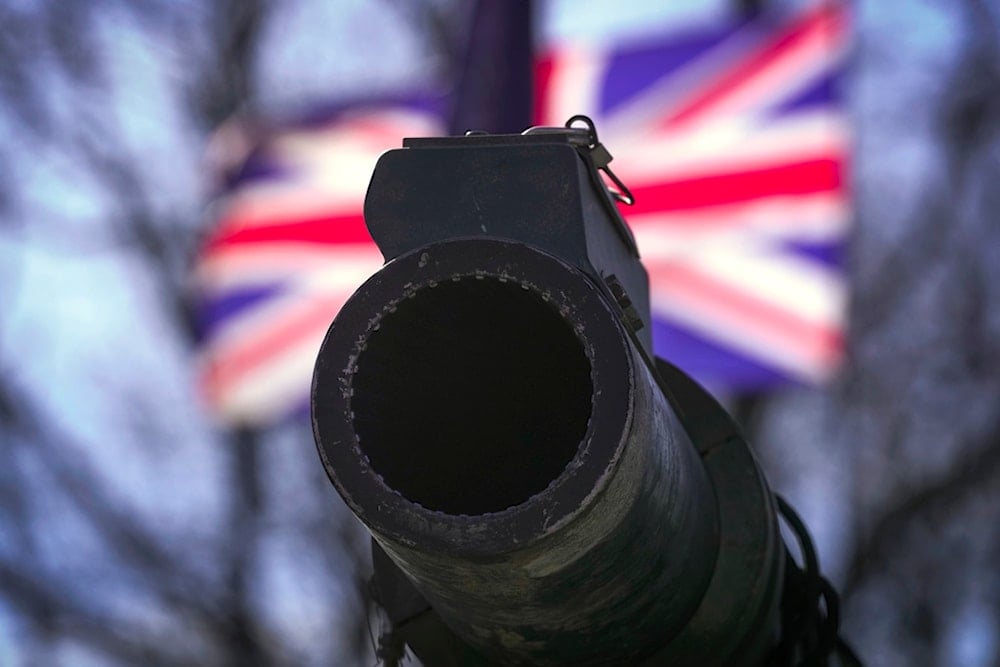UK faces £2.71Bln bill to replenish stockpiles after aiding Ukraine
The NAO reports that the UK has committed £7.8 billion in military aid to Ukraine between January 2022 and March 2025.
-

A cannon of a British Challenger 2 tank is backdropped by a UK flag during a celebration for Estonia's NATO membership 20th anniversary, in Tallinn, Estonia, Thursday, April 4, 2024. (AP)
The UK is set to spend £2.71 billion ($3.6 billion) to restore its military stockpiles, which have been significantly depleted due to arms supplies sent to Ukraine, according to a report released on Wednesday by the National Audit Office (NAO). The Ministry of Defence (MoD) estimates that this amount will be spent over the years leading up to 2030-31, using Reserve funds dedicated to supporting Ukraine.
The report also noted that, by the end of March 2024, the military equipment donated to Ukraine had a current value of only £171.5 million.
The gap between the value of the donated equipment and the replacement cost is largely attributed to the depreciation of older equipment, as well as the Ministry's plans to acquire more advanced models in certain cases, further increasing the overall cost.
In addition to stockpile donations, the UK has rapidly procured military equipment for Ukraine from the defense industry, bringing the total value of aid—combining stockpiles and newly purchased equipment—to £2.59 billion as of March 2024.
However, the NAO report highlighted that since 2023, London has scaled back donations from its own arsenals to avoid compromising the UK's military readiness.
Overall, the NAO reports that the UK has committed £7.8 billion in military aid to Ukraine between January 2022 and March 2025.
The increased military aid to Ukraine has also significantly impacted the UK's spending on combat and peacekeeping operations. The NAO noted that spending reached £2.9 billion in the 2022-2023 financial year, the highest level since the UK's deployment in Afghanistan in 2011-2012.
Read more: UK debt raises 'big red flag' of unsustainability
Since the start of the war in Ukraine, the UK's economy has faced significant challenges that have contributed to its decline.
One of the major impacts has been the sharp rise in energy prices, driven by global sanctions on Russia, which led to inflation and a cost of living crisis.
Households and businesses have struggled with soaring utility bills, reducing consumer spending and economic activity.
The war has also disrupted global supply chains, particularly for key commodities like food and raw materials, leading to shortages and price increases.
The UK has also committed billions in military aid to Ukraine, further straining public finances as the government also faces rising debt levels.
The Bank of England’s response to inflation, with repeated interest rate hikes, has made borrowing more expensive, cooling the housing market and slowing economic growth.
Overall, the war has compounded pre-existing challenges, including Brexit-related issues, pushing the UK economy into a difficult position.

 3 Min Read
3 Min Read









